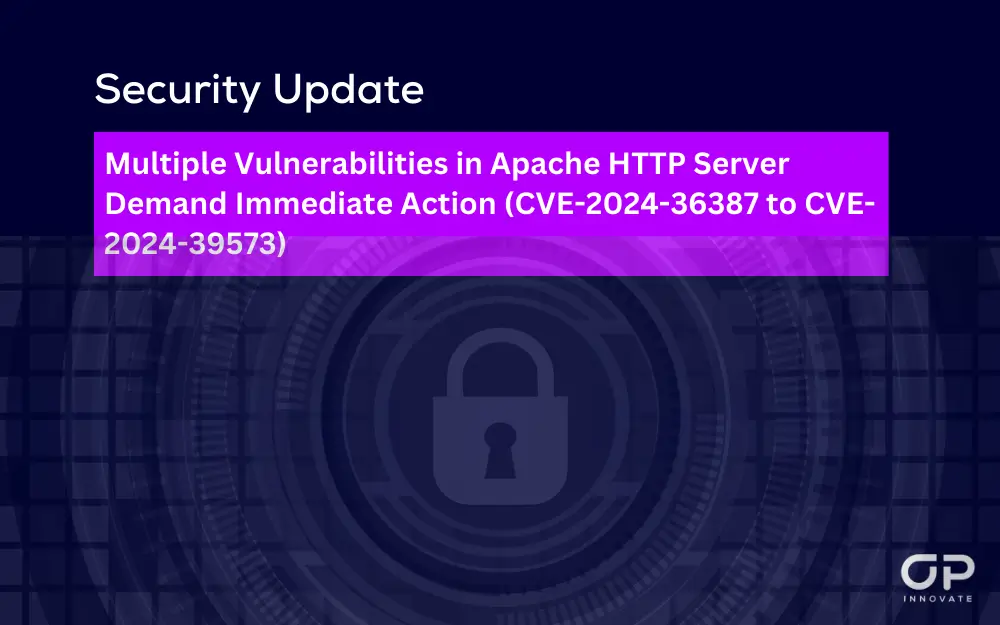The Apache Software Foundation has issued an urgent security advisory regarding multiple vulnerabilities in the Apache HTTP Server. These vulnerabilities, identified as CVE-2024-36387 through CVE-2024-39573, impact various server components, including mod_proxy, mod_rewrite, and core functionalities. The severity of these flaws ranges from denial-of-service (DoS) attacks to remote code execution and unauthorized access, posing significant risks to millions of websites globally.
Detailed Vulnerability Information
- CVE-2024-38472
- Description: Server-Side Request Forgery (SSRF) vulnerability on Windows systems.
- Impact: Potential leakage of sensitive NTLM hashes.
- CVE-2024-38474
- Description: Code execution and source disclosure through encoded question marks in backreferences.
- Impact: Allows remote code execution and source code disclosure.
- CVE-2024-38475
- Description: Unauthorized access to filesystem locations due to improper escaping in mod_rewrite.
- Impact: Enables attackers to access restricted filesystem areas.
- CVE-2024-38476
- Description: Information disclosure, SSRF, or local script execution via malicious backend application output.
- Impact: Exposes sensitive information and enables local script execution.
Potential Impact
Exploitation of these vulnerabilities could result in:
- Server Crashes: Leading to denial-of-service.
- Authentication Bypass: Allowing unauthorized access.
- Data Theft: Exfiltration of sensitive information.
- Full System Compromise: Attackers gaining complete control over affected systems.
Mitigation and Recommendations
The Apache Software Foundation has released Apache HTTP Server version 2.4.60, which addresses all identified vulnerabilities. Immediate action is required to mitigate potential risks.
Recommended Actions:
- Upgrade Immediately:
- Update to Apache HTTP Server version 2.4.60 to patch the vulnerabilities.
- Review and Update Configurations:
- Pay close attention to mod_proxy and mod_rewrite rules.
- Ensure configurations are secure to prevent unintended behavior.
- Monitor Logs:
- Regularly check server logs for signs of exploitation attempts or unauthorized access.
- Implement Web Application Firewall (WAF):
- Deploy a WAF to filter and block malicious traffic, mitigating exploitation risks.
Apache HTTP Server is a critical component of internet infrastructure, and these vulnerabilities highlight the urgent need for prompt patching and vigilant security practices. Organizations must act swiftly to upgrade their systems, review configurations, and implement additional security measures to protect against potential attacks.
Failure to address these vulnerabilities could lead to severe consequences, including website outages, data breaches, and substantial financial losses.



